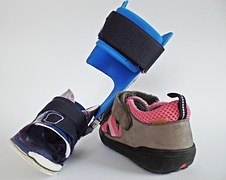
New Jersey employment law has long protected employees against discrimination in employment. New Jersey was one of the first states to do so, passing the Law Against Discrimination in 1947. One of the things that New Jersey’s Law Against Discrimination protects employees from is discrimination because of disabilities. This means that employers are prohibited from doing three things. First, employers cannot take adverse actions, such as firing or demotion, against employees because of their disabilities. Second, employers cannot harass or create a hostile work environment for employees because of their disability. Finally, employeer cannot fail to make reasonable accommodations so that employees can do their job even with their disabilities.
When an employer violates New Jersey’s Law Against Discrimination, employees may sue their employees. If they are successful they can recover their economic damages (such as lost pay), compensation for their emotional distress, the attorneys fees and litigation expenses they spent in the lawsuit, and sometimes punitive damages. Of course, the employees must first prove that the employers violated the New Jersey Law Against Discrimination, and then they must prove their damages.
Proving that an employee had a disability is part of the employee’s required proofs. In many cases there is no dispute because the disability is apparent – if an employee is missing a leg the disability is obvious, and in many cases the disability is admitted. However, in many cases the disability is neither apparent nor admitted by the employer. How then to prove that the employee had the disability? In many cases, this requires testimony from a doctor.
 and ethnicity in violation of New Jersey’s Law Against Discrimination.
and ethnicity in violation of New Jersey’s Law Against Discrimination. New Jersey Lawyers Blog
New Jersey Lawyers Blog


 Jersey
Jersey  tort claim notice must be served in the employment context.
tort claim notice must be served in the employment context.